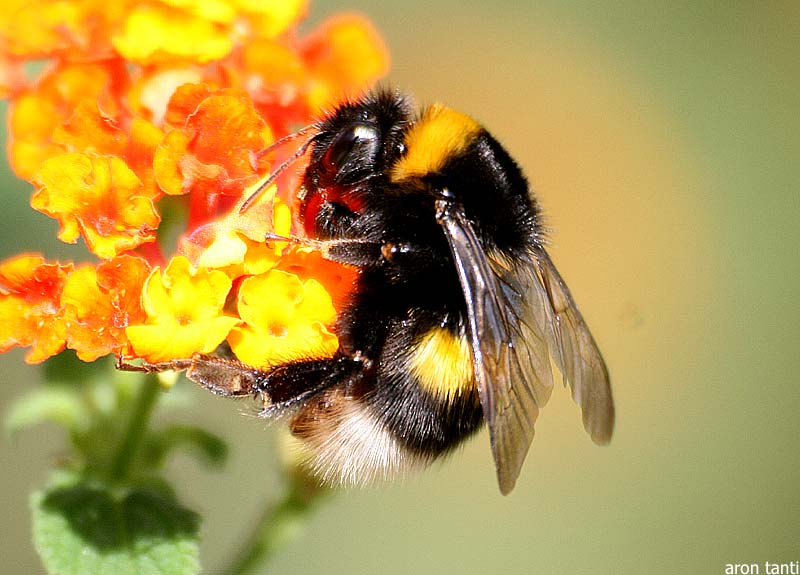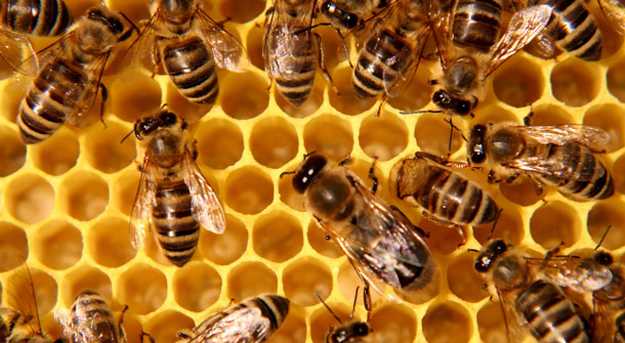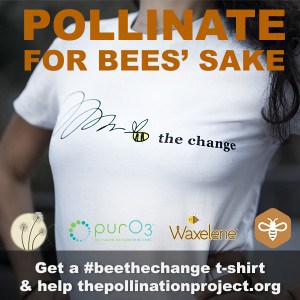We must save the bees! The bee population is declining, but our demand for bees and their amazing honey-producing & crop-pollinating ways is still rising! Here's one (of many) reasons why the bee colonies around the world are at risk.
What's Happening to the Bees!!?
Insecticide Damaging Wild Bee Populations, Study Says
by Steve Baragona – VOA
A popular, but controversial, type of insecticide is damaging wild bee populations, which are necessary to pollinate crops and sustain ecosystems, according to a new study.
Honeybee hives, on the other hand, were not affected by the chemical, from a class known as neonicotinoids. Environmentalists have blamed neonicotinoids for the decline of both wild bees and honeybees in the United States and Europe. The European Union imposed a two-year ban on the chemicals in December 2013.

But the chemicals also get into the plants’ pollen and nectar, where bees are exposed to them. Honeybees do an estimated $15 billion worth of work pollinating foods making up roughly one-third of the American diet, according to the U.S. Department of Agriculture. Wild bees are even more important pollinators for many crops, according to recent research, and these insects are essential for many wild plants to reproduce.
Wild bee decline
In the latest publication, in the journal Nature, Maj Rundlof of Lund University and colleagues in Sweden studied bees foraging in fields of canola, also known as oilseed rape.
Half of the fields were grown from seeds treated with neonicotinoids and half were untreated.
“The most dramatic result we found was that bumblebee colonies almost did not grow at all.” in the treated fields compared to untreated sites, said Rundlof.
A species of solitary bee released next to treated fields did not return to nest, while bees did return at six of eight untreated sites.
Overall, there were roughly half as many bees per square meter in treated fields as in untreated ones.
The contribution of neonicotinoids to the global decline of wild bees “may have been underestimated,” the authors conclude.
Honeybees unaffected

Even the one piece of relatively good news from the study, that neonicotinoids did not seem to affect honeybee hives, presents a problem because regulators study honeybees when deciding whether to approve a new insecticide.
“It’s not very good if the model organism isn’t very predictive of what we want to protect,” Rundlof said.
The results are “pretty dramatic,” said entomologist Dennis vanEngelsdorp at the University of Maryland, who was not involved with the research.
But while it is becoming clearer that neonicotinoids can harm wild bees, vanEngelsdorp said simply banning the chemicals may not be the answer.
“In many cases, [neonicotinoids] are actually the safest alternative,” he said. If they are banned, “what you’re doing is forcing farmers to use products that may either be just as bad or worse.”
Treated seeds are practically ubiquitous, vanEngelsdorp said, and it may be time to rethink that approach. “We have to use pesticides wisely,” he added. “There is no free lunch with applying it ‘just in case,' because we are damaging the ecosystem doing it that way.”
This post is originally from the Voice of America, and shared with love.
That’s all, fellow homesteaders! Do you like bees? Are you worried bout their population decrease too? Let us know in the comments section how you take part in saving the bees! We love doing DIY homesteading projects and becoming more self-reliant by learning more about how everything works around the homestead.




Leave a Reply